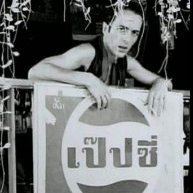Thai Cabinet Rejects New Bt405 Billion Rice Pledging Scheme
-
Recently Browsing 0 members
- No registered users viewing this page.
Announcements
-
Topics
-
Latest posts...
-
8
"Who Are You?" Thaksin's Bold Move Sparks Criticism
Not thinks, let's face it - he is. -
8
Chinese Man Arrested in Pattaya for Pawn Shop Scam with Fake Gold
Just following the former PM's lead I reckon -
6
Pattaya Mobilises 420 Officers to Safeguard Festive Tourists
They sent 900 to Jomtien to find drugs and dealers. Now they will send 1/2 that to “police” Pattaya during the festivities? The police and other agencies should be out and about everyday, not just on holidays. -
4
Thailand Eases Alcohol Sale Rules at Major Airports
Geez, I gotta go all the way out to Swampy on five days every year? -
91
Is it starting?
You really believe that ? Do a poll you'll find out real quick. -
30
Possibility of the Azerbaijan Airlines Embraer 190AR plane was shot down on the 25 Dec
Putin calls such useful idiots.- 1
-

-
0
Inverter Fan Noise
Instead of having all the solar kit in and on the shed, would be easier the mount the PV panels on the main house tiled roof and place the 3 inverters on the wall of the built-in-varanda. Would they be too noisy? -
-
-
Popular in The Pub
.png.3b3332cc2256ad0edbc2fe9404feeef0.png.8488ab72b8bb2e508209bfe3211b6e08.png)








Recommended Posts
Create an account or sign in to comment
You need to be a member in order to leave a comment
Create an account
Sign up for a new account in our community. It's easy!
Register a new accountSign in
Already have an account? Sign in here.
Sign In Now